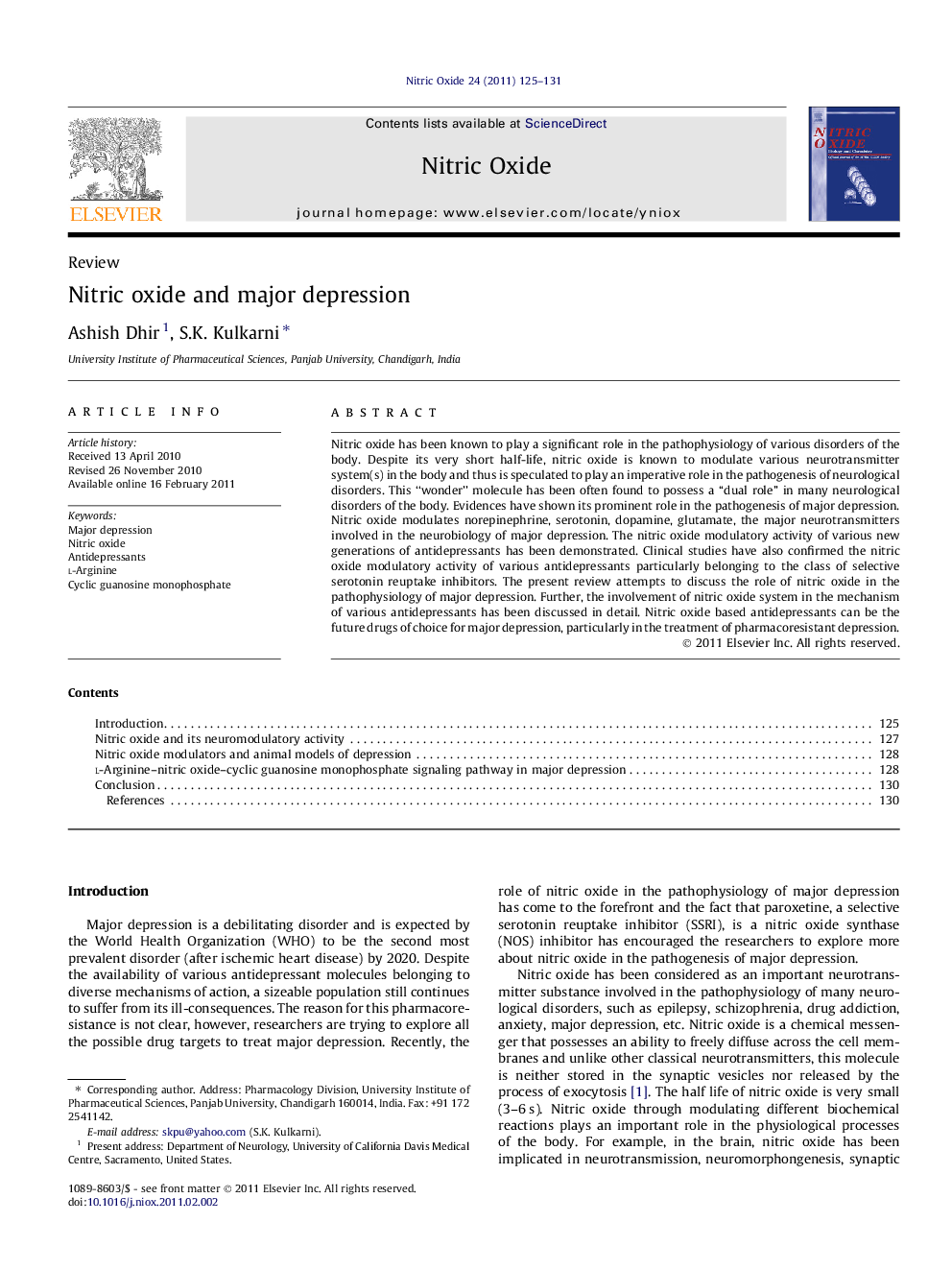| Article ID | Journal | Published Year | Pages | File Type |
|---|---|---|---|---|
| 2001284 | Nitric Oxide | 2011 | 7 Pages |
Nitric oxide has been known to play a significant role in the pathophysiology of various disorders of the body. Despite its very short half-life, nitric oxide is known to modulate various neurotransmitter system(s) in the body and thus is speculated to play an imperative role in the pathogenesis of neurological disorders. This “wonder” molecule has been often found to possess a “dual role” in many neurological disorders of the body. Evidences have shown its prominent role in the pathogenesis of major depression. Nitric oxide modulates norepinephrine, serotonin, dopamine, glutamate, the major neurotransmitters involved in the neurobiology of major depression. The nitric oxide modulatory activity of various new generations of antidepressants has been demonstrated. Clinical studies have also confirmed the nitric oxide modulatory activity of various antidepressants particularly belonging to the class of selective serotonin reuptake inhibitors. The present review attempts to discuss the role of nitric oxide in the pathophysiology of major depression. Further, the involvement of nitric oxide system in the mechanism of various antidepressants has been discussed in detail. Nitric oxide based antidepressants can be the future drugs of choice for major depression, particularly in the treatment of pharmacoresistant depression.
